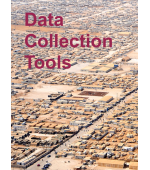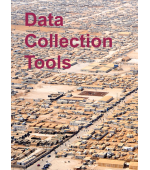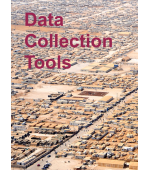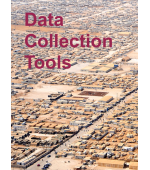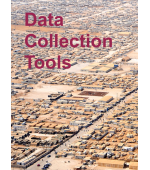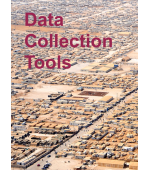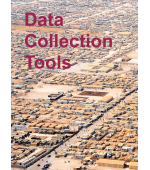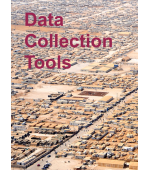- Description
- Comment
- Post a comment
Final Evaluation – “Inclusive Relief and Empowerment for Syrian Refugees with Impairments and Disabilities in Jordan” (PRM Funded Project)
Within the framework of “Inclusive Relief and Empowerment for Syrian Refugees with Impairments and Disabilities Project” in Jordan, the United States Department’s Bureau of Population, Refugees and Migration (PRM) funded a two-year project implemented by International Orthodox Christian Charities (IOCC) in partnership with Noor Hussein Foundation Institute for Family Health – IFH). The project was implemented between 2019 and 2021 in four locations in Jordan: Sweileh, Russeifa, Zarqa, and Irbid, aimed to improve the quality of life of refugees and vulnerable Jordanians with impairments/disabilities and their families. IOCC contracted with Sustainable Research and Development Center (SRD) to conduct this final evaluation. This report presents the findings from an independent evaluation conducted between September and October 2021. The evaluation aimed to analyze the final results of the project in the targeted areas, as well as to assess the efficiency, effectiveness, impact, and sustainability of the project after the implementation through the usage of quantitative and qualitative data.
The evaluation methodology included qualitative-quantitative data collection activities including desk review of project related documents, in-depth interviews and focus-group discussions with beneficiaries, and key informant interviews. Data were collected by the evaluation team and a team of enumerators who used tablets and Kobo Toolbox for data entry, and analysis. The procedures that were used included A desk study, individual interviews, focus group discussions (FGDs), key informant interviews (KIIs). The evaluation team conducted a comprehensive desk research to highlight main project milestones and achievements, covering whole life of the project, while primary data collected through the 78 individual interviews and 8 FGDs conducted for men and women beneficiaries. An interview guide developed with several questions and additional probing questions to ensure all matters of interest to this study were covered. All qualitative feedback summarized thematically. All sessions conducted in IFH centers, lasting for approximately one hour and half. All participants mobilized by IFH staff and provided with a schedule and participant characteristics for each of the FGD. The characteristics of the participants have been disaggregated according to nationality, disability, gender and services received. The evaluation team conducted 17 KIIs with stakeholders, including PRM Project Team of IOCC, IFH team, and Representatives from MoH and MoE using a semi-structured interview approach to gather information to address the research questions, as well as to inform on current and future trends and development schemes.
The evaluation findings showed that the PRM project met and exceeded the targets initially set, for all its indicators, of the project through IOCC/IFH four centers. Across the four geographical areas, Irbid, Russeifa, Sweileh and Zarqa, the key findings of the evaluation can be summarized as follows:
- 6% of the respondents stated that the project services were very relevant or relevant to their needs, concerns and priorities.
- 7% of the respondents stated that they were beneficiaries of IFH’s other services and project in addition to this actual project.
- 7% of the respondents stated that they had received services from 6 months to 1 year in length
- 5% of the respondents stated that the rehabilitation services were very effective or efficient
- 4% of the respondents stated that the project helped them to engage more and develop better
relations with their families.
Based upon the findings from the key informant interviews, focus group discussions and desk review, the following conclusions have been identified:
- More than 50% of the participants found that the service provided by the IOCC project were very relevant. There was a consensus from all the participants that they need these sessions, but they can't pay at private clinics, and they found that this project offers more than one service they need for free, and the most important they assured about the high skills of the specialists who gave the sessions.
- The PSS sessions and the rehabilitation sessions received a very high endorsement from those who received such services.
- The services provided were very appropriate and beneficial in terms of accurate diagnosis and evaluation, and they suited the needs of the beneficiaries, also the aids suited the beneficiaries and there is complete satisfaction with them. Most of the attendees were very satisfied regarding the information provided during the service period especially the home-based exercises information.
- Educating parents on the optimal and correct use of aids and how to install them, and guiding parents on how to conduct home activities that help beneficiaries.
- The majority of respondents stated that they feel as if they are better able to interact with family and friends as a result of the project.
- The project provided services in a humane manner, although the services were free, but this did not affect the quality of services, even if there were some observations, but in general the project was of great benefit, and everyone wanted to continue receiving services from the project
- Families have learned more about the role that they can play in support of their children with disabilities in order to help them develop in such a way that they will be able to integrate themselves into mainstream society.
Copyright Note: This document is protected by Jordanian and international copyright laws. Reproduction and public distribution after purchasing the report without written permission of the sponsor is prohibited. You can only use this document as a secondary source for technical purposes.
Related Products
Contact us
Queen Rania Street
36, Amman 11941, Jordan
M: +962 782768400
Email: srd@srd.edu.jo

